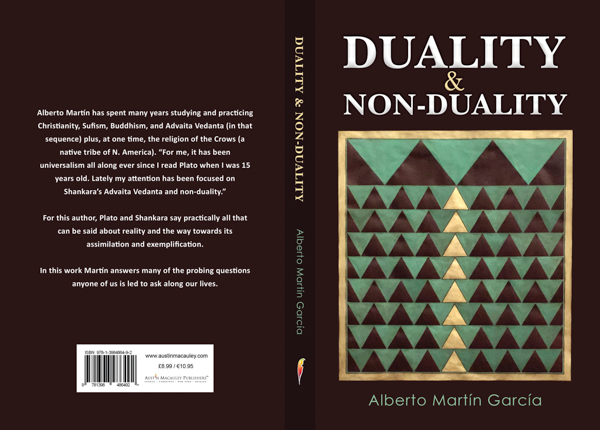A new book announcement with extracts from our regular contributor – Martin.

CONTENTS


A new book announcement with extracts from our regular contributor – Martin.


I am still trawling through old blogs and articles which I wrote around 2011, and that are no longer available on the Internet. Here is a short one which may amuse…
This is the unlikely title of a book which is ostensibly an introduction to Western Philosophy, but is perhaps better viewed as a book of themed jokes. It is not even remotely anything to do with Advaita, so I wouldn’t be happy writing a formal book review.
If you are at all interested in philosophy in general; like reading about it, without necessarily learning very much; and enjoy a good joke, then this is definitely the book for you! It has chapters on many of the key Western names and schools and each has a few paragraphs telling you very cursorily where it fits into the history and what, essentially, it deals with. But this is interspersed with witty remarks and lots of full-fledged jokes which purport to illustrate the particular branch being discussed.
Continue readingQ: Could you say something about the relationship between the ‘hard problem’ of consciousness in modern science and Advaita’s māyā?
A: Science’s problem is trying to explain how consciousness can ‘emerge’ from inert matter. Advaita’s problem is trying to explain how the world can emerge from Consciousness.
The concept of māyā is an interim explanation only. If it satisfies the listener and moves them forward towards accepting non-duality, then it has served its purpose. Ultimately, it is rejected by Advaita. There is only Consciousness. There cannot be Consciousness and a force called māyā.
Every(seeming)thing is non-dual Consciousness. There only seems to be separate things because our mind differentiates forms and gives them names. Just as in the clay-pot metaphor.
The concept of mithyā is better for ‘explaining’ the nature of the world. The world is not real ‘in itself’; it depends upon Consciousness for its existence just as the pot depends upon clay.
There is an essay – ‘Consciousness – not such a hard problem’ – on precisely this topic in my book ‘Western Philosophy Made Easy: A Personal Search for Meaning’.